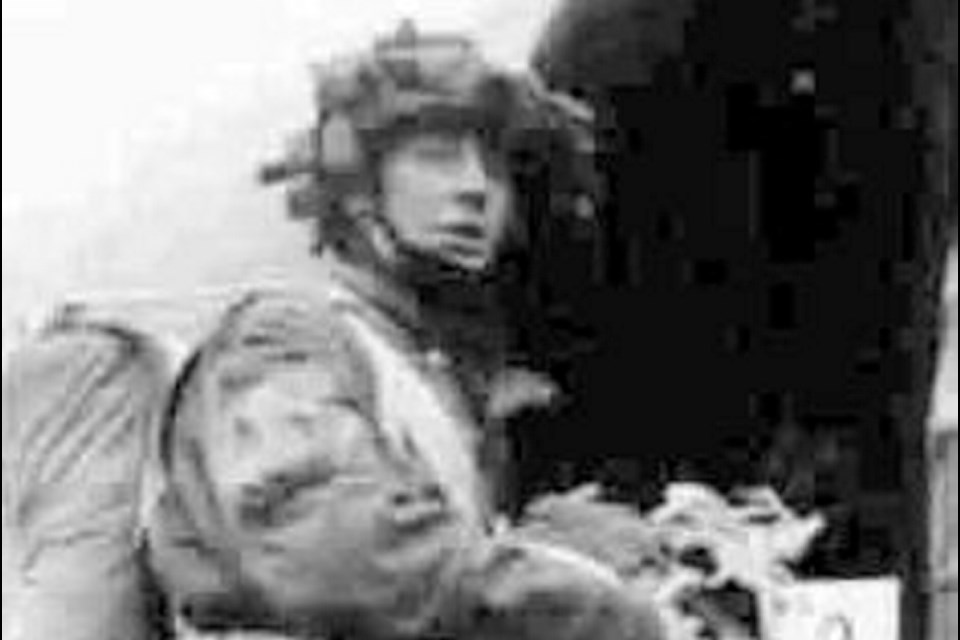Fred McLeod was eating lunch during a visit to Broadmead Lodge this summer when he turned to the man next to him and asked “Is your name Walter?”
Yes, Walter replied, it was. Amazing that the 95-year-old McLeod had recognized him, since the last time they had seen one another was 68 years ago in England, when they served in the same air force squadron.
Fred had a sharp mind right up until Oct. 5, the day he died — another of Victoria’s Second World War veterans gone.
Across town, Robby Robson got to see a Colwood street named after him last month. He had to do it from his wheelchair, though. Approaching his 89th birthday, he’s no longer the gutsy young paratrooper who jumped into Germany from a burning airplane. “His health is deteriorating,” son Brian Robson said this week.
That’s how it is now. Of the one million Canadians who served in the Second World War, Veterans Affairs estimates — guesstimates, really — that just 91,400 remain. With an average age of 89, many of those who remain are fading fast. We’re losing that great generation of Canadians, the ones who were raised in Depression privation, robbed of their youth in war, then came home to quietly build — and be grateful for — a better life. Hearing their children talk about Fred McLeod and Robby Robson, you might hear the echoes of your own father’s, or grandfather’s, story.
Born in Trail and raised in Vancouver, McLeod joined the Royal Canadian Air Force in February 1941, trained as a wireless air gunner, found himself as an instructor with a Royal Air Force unit at Victoria’s Patricia Bay airport. He met Kay in Beacon Hill Park one day when somebody’s car bumped into another. They wed during the war — were still married when he died last month.
Once overseas, McLeod was based in Wales, then Belgium, with the RCAF’s 437th — or Husky — Squadron, flying transports and pulling gliders. He survived a couple of crashes, including one where they came down on a bomber.
As the war ended, he found himself working alongside some Russians in Berlin, where he left his mark. “He actually climbed the Reichstag and carved my mother’s initials into the side of it,” his daughter Karen McLeod said.
A Brandon boy, Robson was just 17 when he enlisted in Winnipeg in 1942. “He lied about his age,” says Brian. Robby ended up in the First Canadian Parachute Battalion, attached to the British Army. They jumped into France the night before D-Day, an action that saw the battalion lose 117 men. That winter, theirs was the only Canadian unit to fight at the Battle of the Bulge. “The town of Bande is where we discovered 37 bodies of villagers who had been beaten to death by the retreating Germans,” Robson later wrote.
His memories, entered on a website, read like a movie. On March 24, 1945, came the crossing of the Rhine, a jump into Germany: “We parachuted under intense fire over the drop zone near a town called Wesel. My plane, ‘the Red Dog,’ was hit on the port side, causing the engine to burst into flame, making it quite ‘iffy’ as we had to jump through the flames of a plane out of control, and as I was second to last in the stick I became quite anxious about egressing in time. The Red Dog sadly crashed with its valiant crew.”
As the battalion pressed into Germany, he took some shrapnel in the right hip, was ordered to stay behind in a town called Altenburg until help arrived. It never did. Instead, he holed up until some British commandos showed up. He fought alongside them for several days, though they gave him a wide berth at night, as his Bren gun fired tracer bullets that gave away his position. “They thought I was a ‘crazy Canadian bastard’ (their words) which made me even more daring and did wonders for my ego.” He later learned that the officer who had told him to stay by himself in Altenburg had himself been mortally wounded, and that they both had been listed as killed in action.
It was hard to squeeze these tales out of Robson after the war, says son Brian. “He’s very private about it. He really just wanted to put that part of his life away.” It wasn’t until he was in his late 60s that Robby was persuaded to tell his stories, put them on a website where his grandchildren could read them.
Likewise, Karen McLeod says that while her dad might have talked about the war, he stayed away from the serious stuff. “He did say they were the best and worst days of his life.”
Some of the bad days were pretty bad, though. As a child, Kay admonished Karen not to burn her grilled-cheese sandwiches. The smell reminded her father of bodies.
In 1954, after 12 years in the army, Robson moved to Victoria and a job at Naden’s Pacific Naval Laboratory. He built his dream home, the first house atop Triangle Mountain, looking out over the water. The current owner, Fritz Karger, is developing the property, has disassembled the Robson home for shipment to Savary Island. A new road, Robson Place, was dedicated in mid-October with Robby, Brian and Colwood Mayor Carol Hamilton among those on hand.
McLeod became an architect after the war, eventually coming to live in Victoria in 1966, where he designed buildings for UVic. He never gave up his love of learning, says Karen.
She helped care for him as his life dimmed. On Sept. 30, he turned to her, told her he was ready to go — which he did, five days later, joining the close to one million Second World War veterans who had already gone. A few like Robson, just a few, remain. Remember them all.



